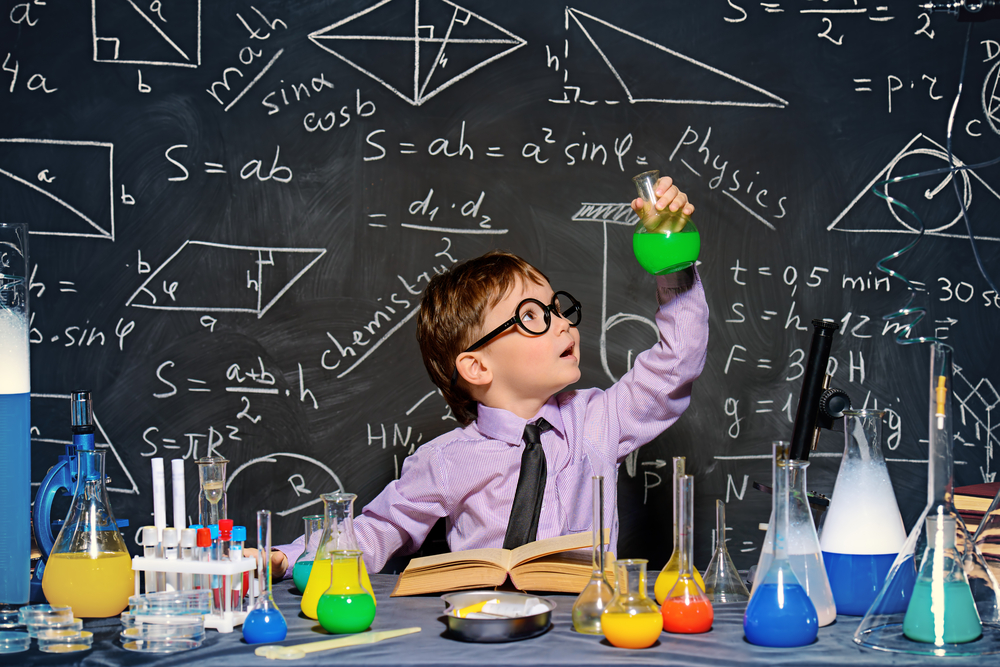Knowledge application Normal Physical Science Worksheets for Ages 6-8
4 filtered results
-
From - To
Explore our Knowledge Application Normal Physical Science Worksheets tailored for ages 6-8. These engaging printables make learning fun, helping young students delve into core physical science concepts while developing critical thinking and practical application skills. Each worksheet challenges children to connect theoretical knowledge with real-world phenomena, reinforcing their understanding through diverse, interactive exercises. Perfect for classroom use or at-home practice, our expertly crafted worksheets cover topics such as forces, materials, and simple machines. Foster a love for science early on with our educational resources designed to stimulate curiosity and boost confidence in young learners.
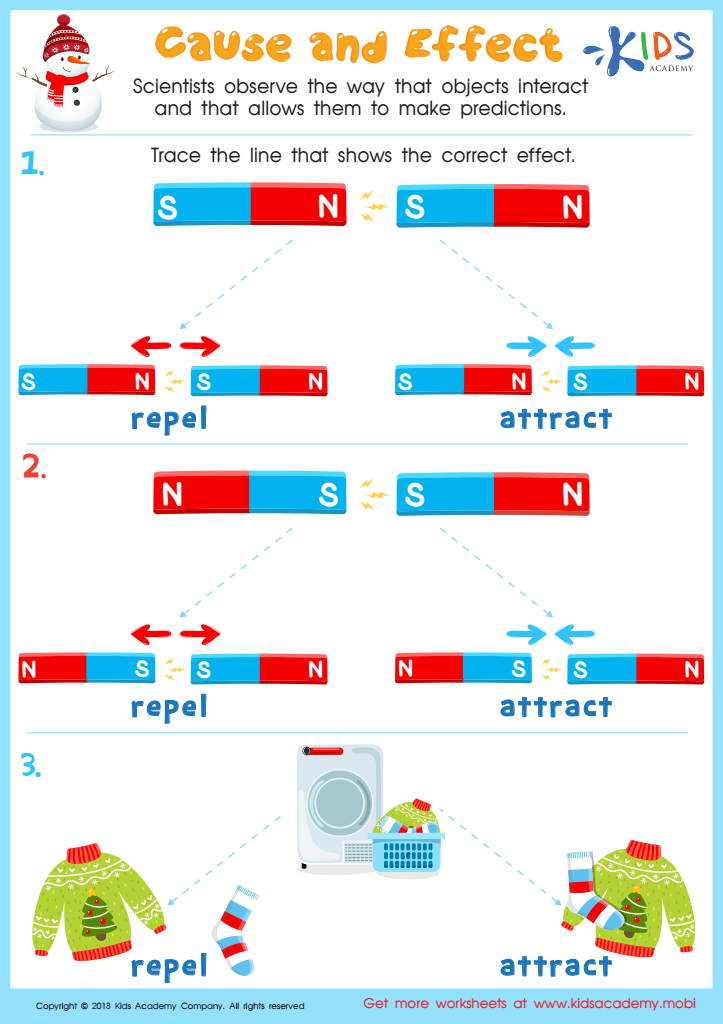

Repel and Attract Magnet Worksheet
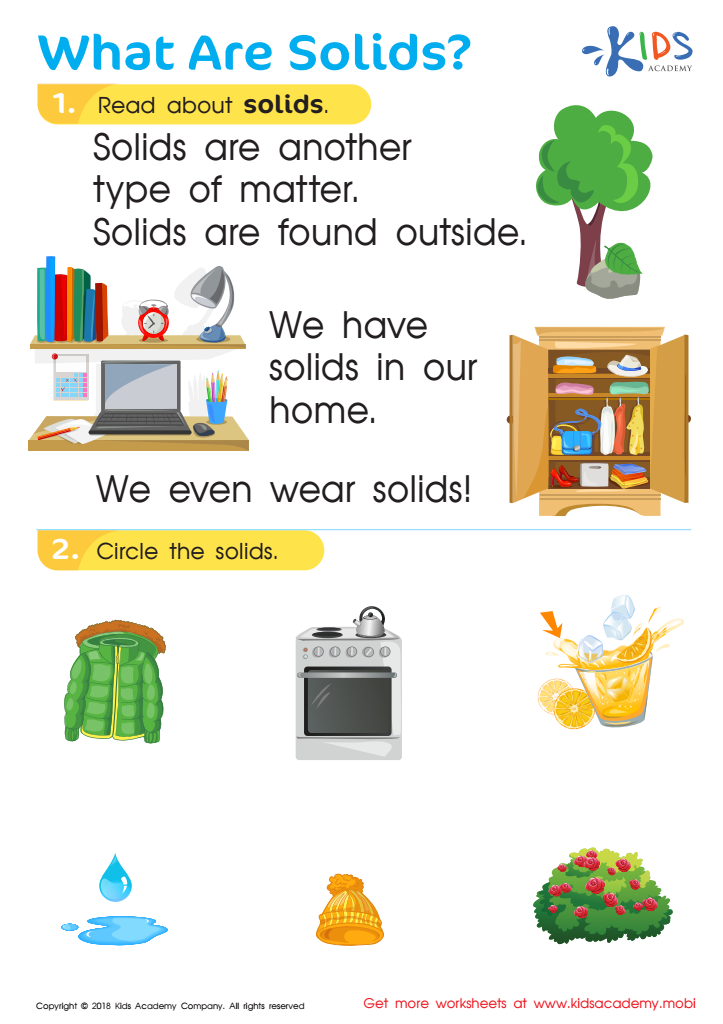

What Are Solids? Worksheet
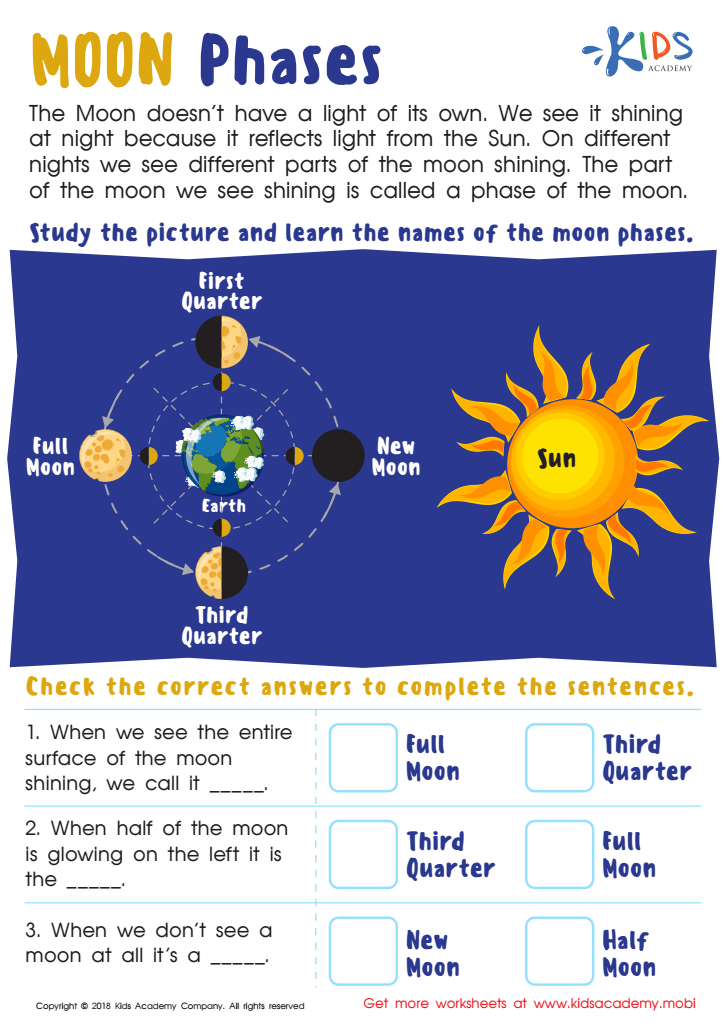

Moon Phases Worksheet
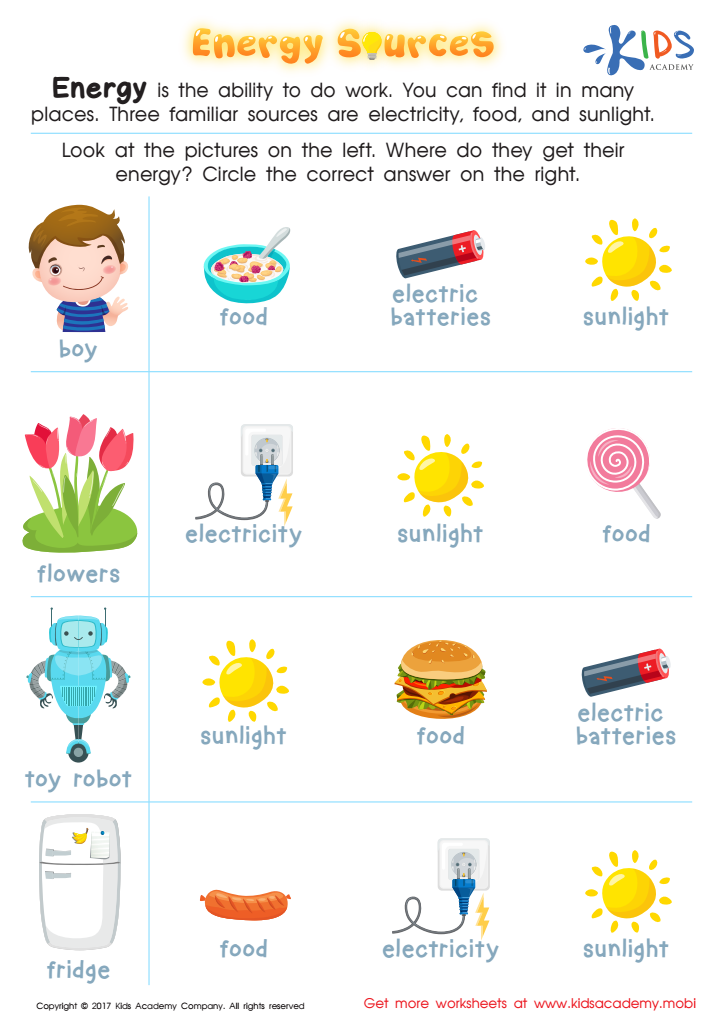

Energy Sources Printable
Parents and teachers should care about the application of physical science knowledge for children aged 6-8 because it is foundational for their cognitive development and lifelong learning. At this young age, children are naturally curious and eager to explore the world around them. Introducing basic physical science concepts helps to harness this curiosity and teaches them critical thinking skills.
Physical science, which often involves hands-on activities like playing with magnets, mixing substances, or observing the natural world, encourages active learning. For children aged 6-8, this experiential approach makes abstract concepts more tangible and understandable. Engaging with these activities develops problem-solving and observational skills, which are essential for academic success in all subjects.
Furthermore, understanding physical science nurtures a sense of wonder and appreciation for how things work. This can inspire a lifelong interest in science, technology, engineering, and mathematics (STEM) fields, which are vital in the modern world. By fostering a supportive learning environment, parents and teachers can help children develop self-confidence in their ability to explore and understand new concepts. Thus, time spent understanding physical science is not only about getting the answers but also about the process of discovery and developing a scientific mindset that will benefit children throughout their lives.
 Assign to My Students
Assign to My Students




